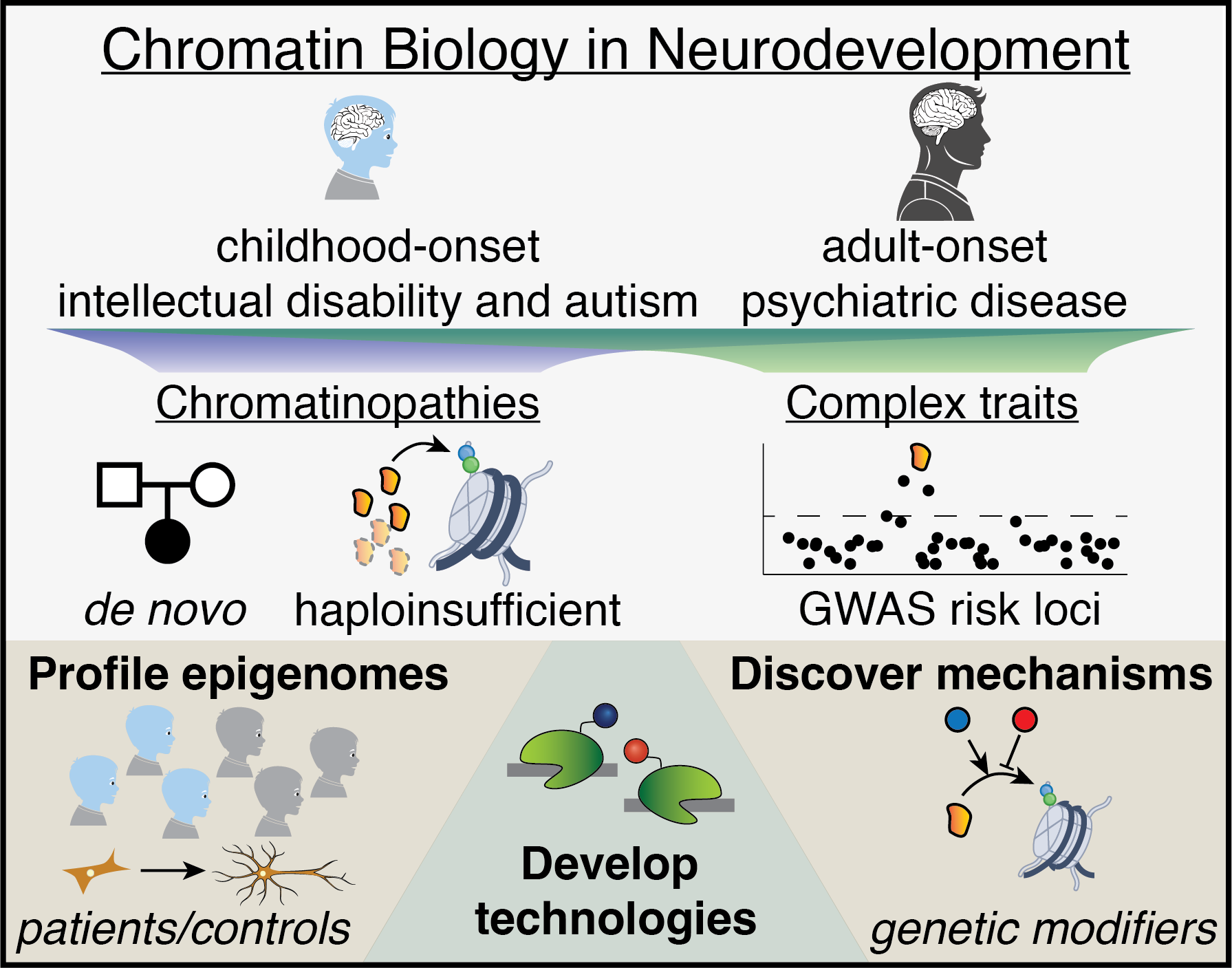Research
Chromatinopathies

One in 200 children is born with lifelong disabilities in learning and intelligence. Genetic testing often finds that the disability is caused by a single DNA sequence change in a gene. One large category of these genes encode chromatin modifiers, which read and write molecular bookmarks to help cells know when to turn on the other genes in our genome. Our central goal is to establish paths towards treating chromatinopathies. This requires addressing several basic questions:
- What specific pathways downstream of chromatin disruption are most affected?
- What other genetic or environmental factors govern the severity of symptoms? Can we use this knowledge to ameliorate these diseases?
- Can restoring normal chromatin function restore cells to a “healthy” state, or is there epigenetic memory of the disease even after correcting the causative gene?
- When during development is chromatin function most critical?
We will address these questions with functional genomics and epigenomics approaches in iPSC-derived neural models, patient-donated tissues, and animal models.
Incomplete penetrance and variable expressivity
Underlying these questions in chromatinopathies are broader fundamental questions in human genetics: why do some people with a disease genotype never develop symptoms? And why are some people with the same genotype more- or less-severely affected? We are developing approaches leveraging our prior work on genetic interactions and new technologies to enable the research community to systematically answer these questions.